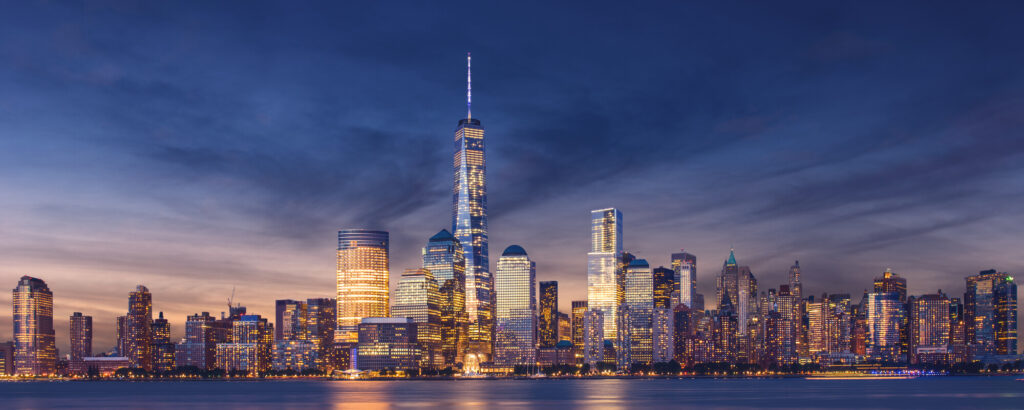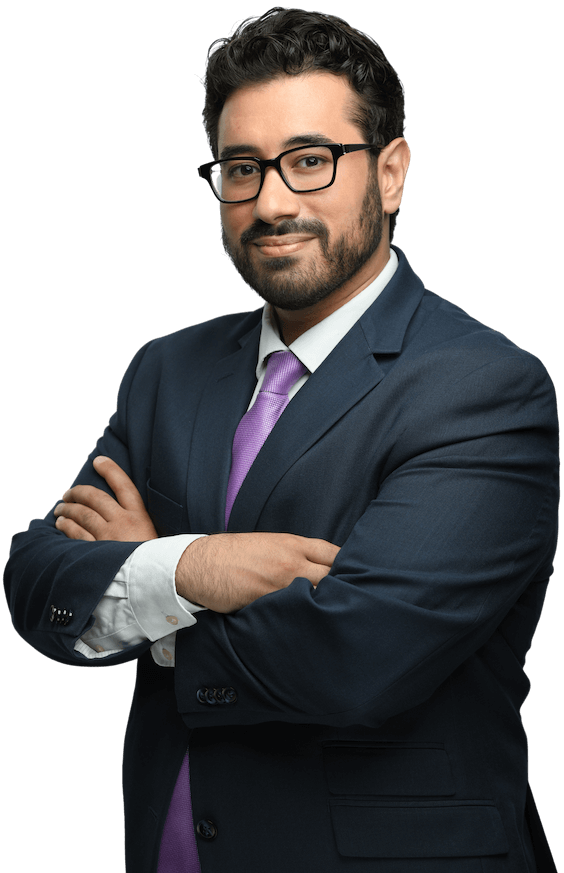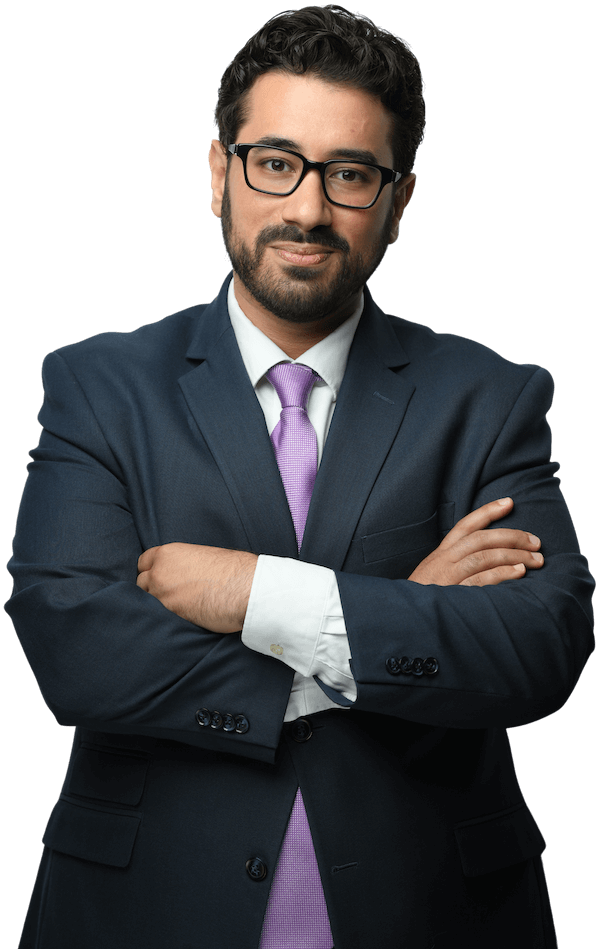Attorney Mehdi Essmidi was a life saver. I was in a very horrible situation, where I reached out to Mehdi on a Sunday, and was able to speak with him regarding my issues. Rather than wait until the following Monday, we set a time to meet & speak so take action in regards to my issues. Fast forward, my case was later dismissed - and my I was able to resume my daily life. Cheers to Mehdi.

NYC Sale of Illegal Cannabis Charges Lawyer
Call us now or schedule a free consultation, and Attorney Mehdi Essmidi will contact you personally to discuss your case.

Cases of CBD shop owners in New York City being charged with selling illegal cannabis products are happening more and more. During raids, law enforcement officers arrest the owners, run on-the-spot tests, and confiscate products worth hundreds of dollars. These raids leave many CBD sellers frustrated and uncertain about how to proceed. If this is your case, you need a skilled lawyer in your corner.
As a former New York City Prosecutor, attorney Mehdi Essmidi has seen firsthand how these cases happen, and he knows the impact a conviction can have on your life and business. You still have rights and options, and we’re committed to building an aggressive defense for your case. Contact us today for a free consultation.
Defending CBD Shop Owners in NYC
The context for selling marijuana has changed considerably with the reform of cannabis laws in New York State. Recreational marijuana and medical marijuana are now legal.
Yet, cannabis shop owners are at the intersection of New York’s cannabis laws covering regulations on the operations of cannabis businesses. Additionally, the court system has implemented stricter policies in cannabis management, ranging from violations of drug possession law to the sale of illegal quantities of THC.
If you’re a CBD shop owner accused or arrested for selling illegal cannabis products, we have experience defending against these charges. We know that every case is unique, which is why we take the time to review your case, understand your side of the story, and identify potential gaps in the prosecution’s case to build a valid defense.
CBD and THC in Cannabis Cases
CBD is a substance found in cannabis plants. It doesn’t produce the “high” associated with marijuana use. Under federal law, selling CBD products is legal as long as they contain less than 0.3% THC.
THC is the psychoactive substance in cannabis that produces the “high.” While New York local law has decriminalized small amounts of marijuana for personal use, selling products with more than 0.3% THC without a license is illegal.
Delta 8 THC
Delta 8 and Delta 9 are two different chemical compositions of THC. Delta 9 is typically associated with the euphoric effects most people come to think of with marijuana. Delta 8 is less potent than Delta 9 but can still produce a high.
Some CBD shop owners have been selling products containing Delta 8 THC under the assumption that it’s legal because it comes from hemp, not marijuana.
However, prosecutors have started curbing these sales, arguing that any product containing a psychoactive amount of any type of THC is illegal without a license.
NY Laws Covering the Illegal Sale of Cannabis
Cannabis laws have seen significant changes, opening up a complex web of regulations. Cannabis products can be consumed in areas where tobacco smoking is allowed but is prohibited in motor vehicles.
The issue is that the ability to purchase marijuana is still subject to further regulations. New York Penal Law differentiates controlled substance offenses into various degrees based on the type of substance, the amount possessed, and the intent (personal use vs. intent to sell).
Common Cannabis Charges
Here is a comprehensive list of the charges associated with cannabis law in New York City:
Unlawful sale of cannabis (Penal Law § 222.45): An individual is guilty of unlawful sale of cannabis when they knowingly sell small amounts of cannabis or concentrated cannabis.
Criminal Sale of Cannabis in the Third Degree (Penal Law § 222.50): This is a class A misdemeanor, applicable when a person knowingly and unlawfully sells cannabis that is more than three ounces or contains more than twenty-four grams of concentrate.
Second-Degree Criminal Sale of Cannabis (Penal Law § 222.55): This is a Class E felony and applies to sales exceeding sixteen ounces of cannabis or more than five ounces of concentrated cannabis.
First-Degree Criminal Sale of Cannabis (Penal Law § 222.60): This is a Class D felony involving the sale exceeding five pounds of cannabis or more than two pounds of concentrate.
Aggravated Criminal Sale of Cannabis (Penal Law § 222.65): A Class C felony, applicable if someone knowingly and unlawfully sells over one hundred pounds of cannabis.
NY Cannabis Landlord Accountability Laws
In addition to the prospect of criminal charges being brought against CBD shop owners selling illegal cannabis products, landlords who rent space to these businesses can also face penalties under the Marijuana Regulation and Taxation Act (MRTA).
These laws make it illegal for landlords to rent space to businesses selling cannabis products illegally. If convicted, landlords can face fines, potential jail time, and the potential loss of their property.
NY Marijuana Regulation & Taxation Act
The New York Marijuana Regulation & Taxation Act (MRTA) legalized recreational marijuana for adults over the age of 21. The law also established a regulated market for the production, distribution, and sale of marijuana.
However, although the MRTA has legalized marijuana use, it hasn’t legalized all marijuana sales. Businesses still need a license to sell marijuana products.
The MRTA also imposes strict regulations on how marijuana products can be marketed and sold. For example, it prohibits the sale of marijuana products to minors and places restrictions on advertising and packaging. Violating MRTA regulations can result in fines and potential criminal charges.
Consequences of a Conviction
Being convicted of selling illegal cannabis products can have severe consequences. Depending on the specifics of your case, you could be facing fines, potential jail time, and the loss of your business.
Financial Penalties: Financial penalties for selling illegal cannabis products can be substantial. For a class b misdemeanor conviction, fines can range up to $1,000. However, felony charges, such as the sale of concentrated cannabis to a minor (a class b felony), can carry a fine of up to $30,000.
Unlicensed cannabis businesses can face fines starting from $10,000 per day, escalating to $20,000 per day for egregious violations, such as repeatedly operating without a license.
Jail Time: The length of the sentences depends on the charges against shop owners. For example, a misdemeanor conviction can carry a sentence of up to one year in jail.
A felony conviction can carry a sentence of up to 15 years in prison, and it can be even more severe if charges constitute trafficking.
Loss of Business: A conviction for selling illegal cannabis products can also result in the loss of business. The business license could be revoked, and you could be barred from obtaining a license in the future.
Criminal Record: Having a criminal record from selling illegal cannabis products can complicate securing financial opportunities.
Common Criminal Sale of Marijuana Defenses
When facing charges for selling illegal cannabis products, it’s crucial to have a strong defense strategy. Our lead attorney, Mehdi Essmidi, leverages his experience as a former prosecutor to build aggressive defenses. Here are a few strategies we may use:
- Lack of Knowledge: One possible defense is that you didn’t know the products you were selling contained more than the legal limit of THC. The prosecution must have evidence and testimony to prove beyond a reasonable doubt that you knowingly sold illegal cannabis products to ensure a conviction.
- Unlawful Search and Seizure: Another potential defense is challenging the legality of the search that led to your arrest. The Fourth Amendment protects people from unreasonable searches and seizures. If law enforcement officers didn’t have a valid warrant or probable cause to search your shop, evidence obtained during that search could be inadmissible in court.
- Chain of Custody Issues: We may also challenge the chain of custody of the evidence against you. If there were any gaps in the chain of custody — meaning the evidence wasn’t properly tracked or stored — it could cast doubt on its integrity and reliability.
- Licensing of cannabis production and distribution: Under NY Penal Law § 222.20, if a CBD shop owner can demonstrate that they acted within the bounds of cannabis law, such as having the proper licenses for production and distribution, this may serve as a legal defense.
Contact Us for a Free Consultation
If you’re facing charges for selling illegal drugs, the sooner you contact us, the sooner we can build a strong defense for your case. At The Law Offices of Mehdi Essmidi, we understand a conviction’s impact on your life and business. That’s why we’re committed to providing aggressive defense representation. Contact us for a free consultation.
FAQ
Can the police raid my CBD shop without a warrant?
The Fourth Amendment of the U.S. Constitution protects individuals from unreasonable searches and seizures. This means that, in most cases, law enforcement officers need a warrant to search your property. However, there are exceptions to this rule. For example, if officers have cause to believe that a crime is being committed in your shop, they may be able to search without a warrant. Additionally, the agencies responsible for regulating the license that grants these stores the authority to sell CBD products and Cannabis products may conduct inspections to make sure that the law is being followed without prior warning and failure to comply can result in loss of license.
Can I be charged with obstruction if I don’t allow the police into my cannabis shop?
Obstruction of justice can result from interfering with law enforcement officers while performing their duties. If you refuse to allow police officers into your shop when they have a valid warrant or probable cause, you could potentially be charged with obstruction.
Can law enforcement confiscate my product even if the test shows negative?
Yes, law enforcement can confiscate your products as evidence during a raid, even if preliminary tests do not show the presence of illegal substances. However, if lab tests later show that your products did not contain illegal substances, this could have a significantly positive impact on your case.
What role does the district attorney’s office play in cannabis charges?
The district attorney’s office is critical in discussing case details with the police and is involved throughout the court process once a defendant has been arrested.
What are the specifics of New York’s cannabis laws on medical marijuana use, and how do they affect the cannabis business?
The use of medical marijuana has gained support, particularly under the current cannabis laws in New York City. Despite the presence of medical marijuana cards, these regulations are part of a broader structure detailing cannabis laws that apply to both recreational and medical use. Regardless of whether cannabis consumers possess marijuana cards, the sale of cannabis products must still comply with the legal thresholds for THC content and licensing requirements.
Schedule a Free Consultation

Experienced Criminal Defense Attorney
As a former New York City Prosecutor, Attorney Mehdi Essmidi knows the playbook that the prosecution will use against you. He uses his experience and knowledge to aggressively fight your charges and get you the best possible outcome. If you're looking for an aggressive defense lawyer who won't back down from a challenge, then Attorney Essmidi is the right choice for you.